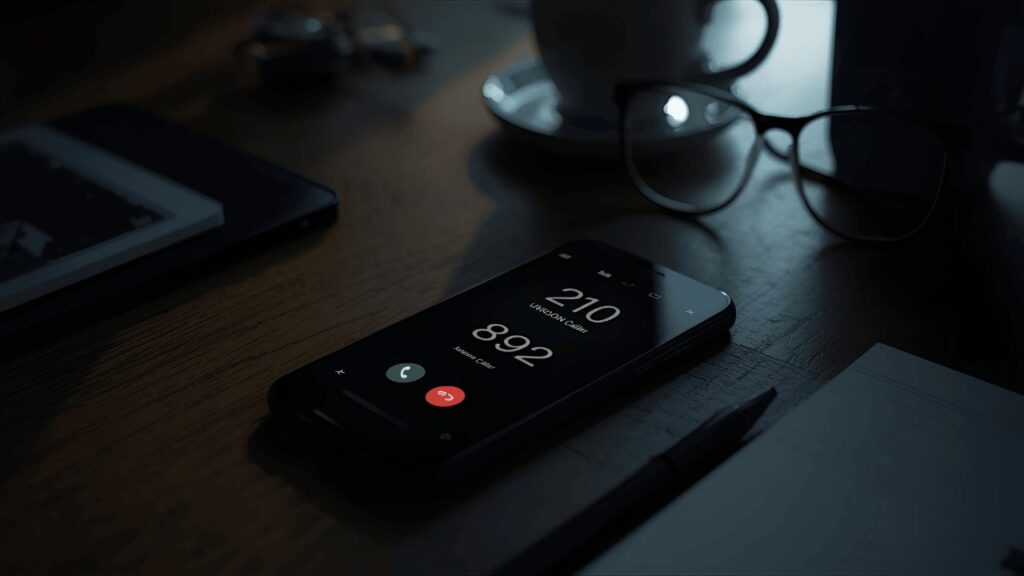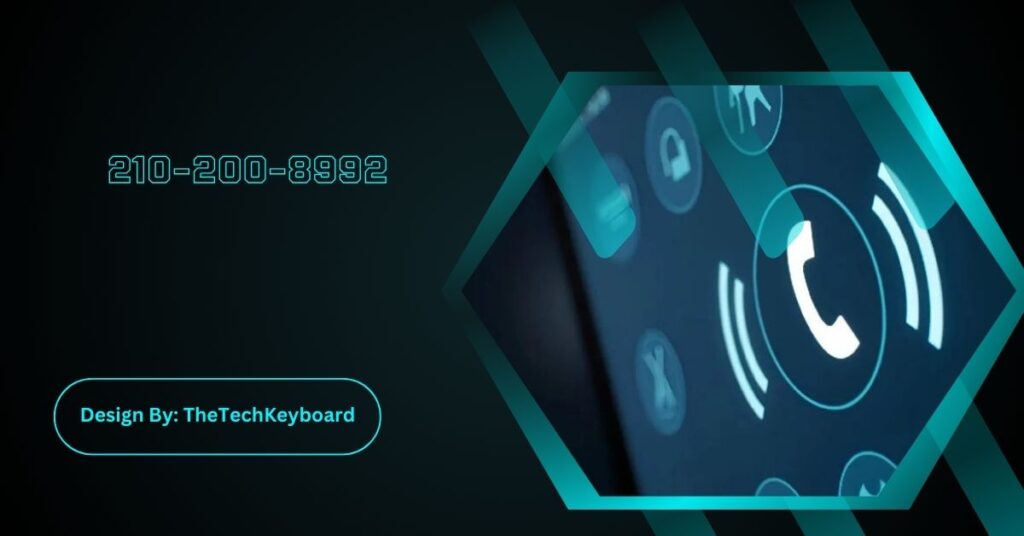The phone number 210-200-8992 is often linked to scam and spam calls using spoofing tactics. Protect yourself by verifying callers, blocking suspicious numbers, and reporting fraudulent activity to authorities for safety.
In today’s world, scam calls have become a constant threat, and one number that’s been causing a stir is 210-200-8992. Many people have reported receiving persistent calls from this mysterious number, leading to concerns about its legitimacy.
This guide will help you understand the origin of 210-200-8992, identify whether it’s a scam, and learn proven strategies to protect yourself.
What Exactly Is 210-200-8992?
The number 210-200-8992 has gained attention due to numerous reports of suspicious calls. It’s linked to a Texas area code (210), primarily associated with San Antonio. While some calls from this number might be legitimate, many users report them as spam, telemarketing attempts, or scams.
Common characteristics of this number include:
- Repeated calls at odd hours
- No response when answered
- Robotic or pre recorded messages
- Attempts to obtain sensitive personal information
Key takeaway: Treat calls from 210-200-8992 with caution, especially if the caller pressures you into making quick decisions.
Where Does 210-200-8992 Originate?

The 210 area code belongs to San Antonio, Texas, but the rise of caller ID spoofing makes it difficult to determine the true origin of these calls. Scammers often fake caller IDs to make it look like the call is local, increasing the chances that you’ll answer.
Caller ID Spoofing Explained
Spoofing is a technique used by scammers to:
- Appear as a trusted local number
- Mimic official institutions like banks or government agencies
- Bypass call blocking apps by changing numbers frequently
Because of spoofing, even if the area code suggests Texas, the actual caller could be anywhere in the world.
Why Are You Receiving Calls from 210-200-8992?
People report getting calls from this number for several reasons, both legitimate and suspicious.
1. Legitimate Reasons
Not all calls from this number are scams. In some rare cases, it could be:
- A local business trying to reach you
- Medical offices or service providers confirming appointments
- A customer service call from a company you’ve done business with
2. Scam or Spam Activity
Unfortunately, most reports suggest fraudulent activity, such as:
- Robocalls promoting fake offers or prizes
- Phishing attempts asking for bank or credit card details
- Threatening calls claiming you owe money or face legal action
- Fake tech support scams aimed at gaining access to your computer
Pro tip: If the caller asks for sensitive information like Social Security numbers, passwords, or payment details, it’s almost certainly a scam.
Red Flags – Signs It’s a Scam Call!
Recognizing the warning signs can help you stay safe. Here are common red flags reported by victims of 210-200-8992:
- The caller creates a sense of urgency or fear
- They request confidential information over the phone
- You hear silence or background noise, but no response
- The call hangs up immediately after you answer
- The same number calls multiple times per day
Techniques Scammers Use
Scammers are becoming more advanced, using several tactics to trick people:
1. Caller ID Spoofing
As mentioned earlier, spoofing disguises the scammer’s true location, making them harder to trace.
2. Data Breach Exploitation
Your phone number might be on a list obtained through:
- Data breaches of popular websites
- Leaked subscription lists
- Online forms where you unknowingly gave consent
3. Robocalls and Automated Scripts
Automated systems allow scammers to:
- Call thousands of people simultaneously
- Leave pre recorded messages urging you to call back
- Filter out numbers that respond for further targeting
4. Psychological Manipulation
Scammers often play on emotions, using:
- Fear tactics, such as threats of arrest or fines
- Excitement, like claiming you’ve won a prize
- Urgency, insisting you must act immediately
Also Read: Pedrovazpaulo Consulting – Strategy & Innovation for Growth!
How to Verify 210-200-8992’s Identity?
Before taking action, it’s crucial to verify who’s behind the call.
Reverse Phone Lookup Tools
Use trusted tools like:
- Truecaller
- Hiya
- Whitepages
These services can provide details about the caller, including whether others have flagged the number as suspicious.
Check Community Reports
Websites like 800notes.com or WhoCalledMe allow users to share their experiences, helping you identify patterns of scam activity.
Pro tip: Avoid calling back unknown numbers, as this could confirm your number is active, leading to more spam calls.
What to Do When You Receive a Call?
Your response depends on whether you answer or miss the call.
If You Answer
- Stay calm and do not provide personal details
- Ask for verification, such as a callback number and company details
- If the caller becomes aggressive or refuses to verify, hang up immediately
If You Miss the Call
- Avoid calling the number back right away
- Perform a reverse lookup first
- If it’s identified as spam, block the number
Blocking & Protection Strategies
Here are effective ways to prevent future calls:
Use Built In Smartphone Features
Most smartphones have options to:
- Block numbers manually
- Silence unknown callers
- Send unknown numbers directly to voicemail
Install Call Blocking Apps
Apps like Truecaller, Nomorobo, and Hiya offer advanced features to:
- Identify potential scam calls
- Automatically block known spam numbers
- Create custom blocklists
Contact Your Carrier
Many mobile carriers now provide spam protection services, often free of charge.
Examples include:
- Verizon Call Filter
- AT&T ActiveArmor
- T-Mobile Scam Shield
Legal & Regulatory Options

If you’ve been harassed by repeated calls, you have legal options:
- Report to the FCC (Federal Communications Commission)
- File a complaint with the FTC (Federal Trade Commission)
- Register your number with the National Do Not Call Registry
- In severe cases, contact local law enforcement
These steps not only help you but also contribute to tracking and shutting down scammers.
User Reports and Real Experiences
Many users have reported their experiences with 210-200-8992:
- “The call came late at night and went silent when I answered.”
- “They claimed to be from my bank but refused to provide details when I asked.”
- “I blocked the number, but they started calling from a different number the next day.”
These stories highlight the importance of staying vigilant and taking steps to protect yourself.
The Future of Scam Call Prevention
Technology is evolving to fight back against scam calls.
STIR/SHAKEN Technology
This framework verifies caller IDs, helping carriers identify and block spoofed calls.
AI-Powered Spam Detection
Machine learning systems are being developed to:
- Analyze calling patterns in real time
- Automatically flag suspicious numbers
- Reduce the overall number of scam calls reaching consumers
FAQs:
1: Why does 210-200-8992 keep calling me repeatedly?
The number may be part of a scam operation using auto dialers to target many people at once. Blocking the number and reporting it to your carrier or the FTC can help stop future calls.
2: Can scammers use 210-200-8992 to access my bank account?
Simply answering the call won’t give scammers access to your bank account. However, sharing sensitive information like account numbers, PINs, or passwords during the conversation can put you at serious financial risk.
3: How can I confirm if 210-200-8992 is legitimate?
Use reverse phone lookup apps like Truecaller or Hiya to verify the caller. Check online scam reporting forums. If the caller refuses to provide clear identification, assume it’s fraudulent and block the number.
4: Are calls from 210-200-8992 always automated?
Not always. Some may feature real people posing as officials or customer service agents. Many are robocalls, though, designed to scam you using pre recorded messages or to identify active phone numbers for future targeting.
5: What legal steps can I take against persistent scam calls?
You can report harassment to the FTC or FCC, register your phone number with the National Do Not Call Registry, and, in extreme cases, involve local law enforcement for additional protection and action.
Conclusion:
Scam calls from numbers like 210-200-8992 are increasing, often using spoofing and manipulation to trick unsuspecting victims. Protect yourself by staying alert, verifying caller identities, and never sharing sensitive information over the phone. Utilize blocking tools, report suspicious activity to the FTC or FCC, and stay updated on the latest scam prevention methods. Your awareness and quick action can stop scammers from exploiting you and help others stay safe in today’s digital communication landscape.
Related Post:
- Kennedy Funding Ripoff Report – Uncovering the Facts and Complaints!
- Uvlack – Smart Tech Solution for UV Protection and Beyond!
- Olimpus Scan – Powerhouse Behind Unofficial Manga Translations!
- Antonio Chi Su – Visionary of Cultural Fusion!
- Anthony Skaria – America’s Youngest Real Estate Powerhouse!
- Wepbound – Features, Benefits, and the Future of Work!
- Leah Gettens – Transforming Businesses with Lean Six Sigma!


